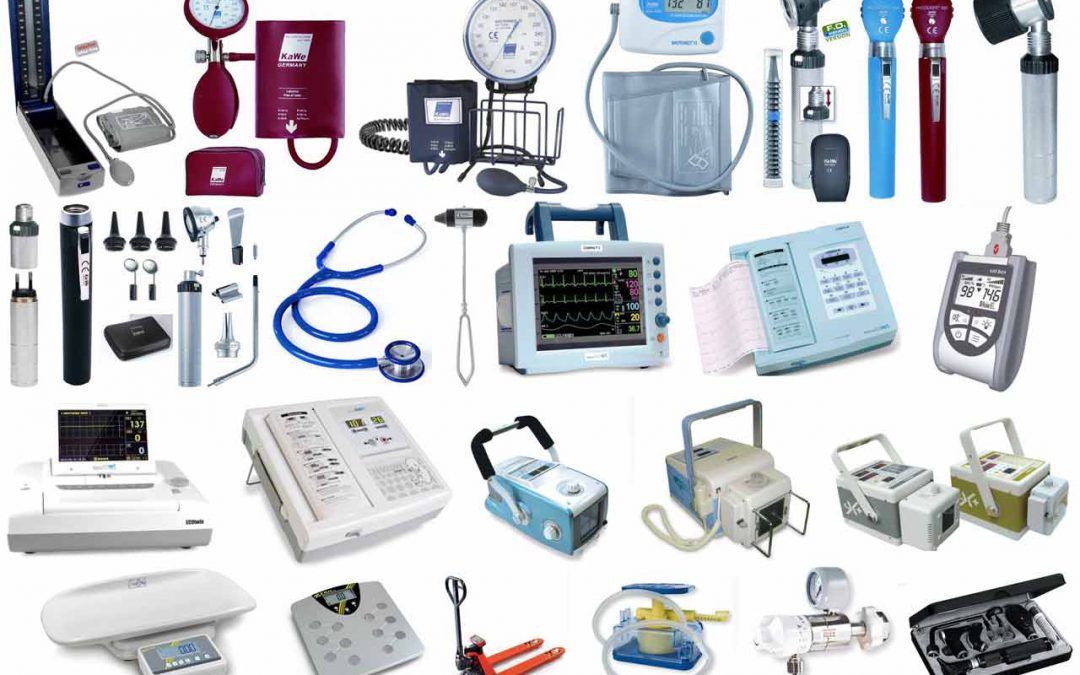National, Regional, Global - Future Opportunities For Thailand’s Medical Device Companies
Thailand Medical News Jan 18, 2019 7 years, 1 week, 5 days, 1 hour, 6 minutes ago
Various research reports on Thailand’s role in the production, local dissemination and exportation to domestic as well as international markets for medical devices reveal healthy forecasts.
Predications are that the medical device market in the country will continue to grow at average rates of between 8.5-10% per annum.
Such strength in growth opens exciting opportunities for the Medical Device companies involved in this sector.
Breakdown of 3 medical device categories:
Before getting into reasons as to why such growth is expected, and the challenges that need to be addressed by Thai operators in this sector, we will break down into 3 categories the medical device market:
Note: The medical device sector should be regarded as a high-value industry and reflects both medical device and medical equipment.
-
Single-Use Devices: These devices are used for general medical treatments and have no reliance on high-technology production. The term ‘single-use device’ indicates that once used they are then disposed of. Examples: Syringes, Hypodermic Needles, Catheters, Tubes, Disposable Gloves.
- Durable Medical Devices: These are devices that are classed as having a life-span of at least 1 year. Examples: First Aid Kits, Medical Beds, Wheelchairs, Technical equipment for use in medicine, surgery, dentistry and ophthalmic practice, X-Ray machines and Diagnostic tools.
- Reagents and testing kits: This includes equipment which is used for illness diagnosis and conditions as well as chemical kits used to test samples taken from patients. Examples: Blood testing devices, Dialysis analysis, Pregnancy testing and devices used to test for HIV infection.
Combined global market value:
To emphasise the potential of market growth expectations over the coming year, here are figures for global market imports and exports of
medical devices in 2016.
The combined value was 71.13 Trillion Thai Baht – Made up in value of:
- Durable goods = 76%
- Single-use devices = 20%
- Reagents & Test kits = 4%
Growth supported by:
Here are 4 ‘supporting avenues’ that indicate such positive growth opportunities for the Kingdom’s operators in the medical device sector:
- Government Policy: The government’s is focused on promoting investment in this sector via special investment privileges. It has also already put into place an official commitment target in terms of the Kingdom becoming a medical hub and a centre for the manufacture and export of medical devices by the year 2020.
- Rising illness trends: Due to the ever-increasing aging society in the Kingdom, inc
reased production and dissemination of medical devices will be required. This will be particularly relative to equipment and devices that assist those with heart disease, strokes, cancer and diabetes.
- Increased numbers of foreign patients: It is well known that Thailand is a major player in the Medical Tourism sector. The growth in this sector is expected to be maintained. This should be seen through increased credibility of quality and the standards of medical treatment available for expatriates living in the Kingdom, and for the increasing number of foreigners who visit to receive medical treatment.
- Existing/New hospital entrants: Plans have been slated by existing hospital operators to continuously improve existing facilities and invest in new establishments. In conjunction with this, new operators such as CP Medical Centre Co. Ltd are entering the market and have already committed to building huge, new medical facilities. In both cases this will mean that an extensive amount of new medical devices will be required to serve such establishments.
Challenges:
It is clear that such needs and growth offer significant opportunities for expansion, increased production and increased sales, but there are undoubtedly stern challenges that need to be understood and met:
- Entry of Foreign operators: There is no doubt that Foreign operators see Thailand’s medical device sector as a lucrative opportunity to expand their global presence. The entrance of such operators will place pressure on national operators due to higher competition.
-
- Higher investment costs: To keep pace with the latest manufacturing techniques, Thai companies in the medical sector will be required to invest in new technologies and innovations to keep pace with the competition.
- Cost of importing materials: Increased costs of importing materials due to possible fluctuation of exchange rates could be a significant factor that all operators in this sector need to bear in mind.
Scope for significant growth:
With such significant growth possibilities in all areas of the medical device sector it is vital that Thai companies grasp the importance of government initiatives in place.
They must take advantage of the significant benefits on offer to increase their presence in the manufacture and production of medical devices.
Think local, Think regional, Think global!
While many Thai operators will be tempted to concentrate on the healthy growth projections to service the Kingdom’s ‘local’ market they should also consider markets further afield. In this respect, ASEAN countries represent an excellent opportunity as do the rapidly increasing needs of the global community.
Yes, there will be increased competition and pressures. Challenges will come from many different directions and these need to be met full on with confidence and ability.
Those companies with the mindset that
Thailand will achieve its aim of becoming a major regional hub for medical health care services and associated devices will be well placed to take advantage.
Being in such a position will surely mean prosperity as expansion in demand continues apace.
